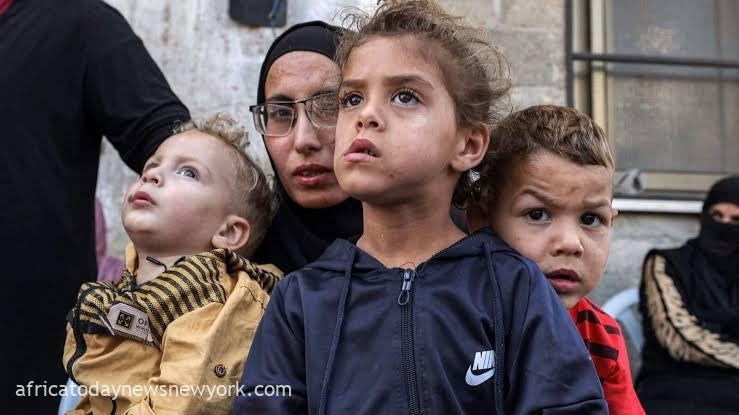The UN is poised to seek clarification from Moscow this Monday, pressing for an account of the well-being of numerous Ukrainian children thought to have been forcefully transported to Russia post the 2022 invasion.
In a standard review, the United Nations Committee on the Rights of the Child, comprised of 18 independent experts, will devote two days to scrutinizing Russia’s conduct.
A detailed compilation of concerns was dispatched to Moscow in the early months of 2023.
They are seeking information on the number of children “evacuated” either to Russia or within the regions of Ukraine under Russian occupation.
Additionally, they are inquiring about the measures taken by Moscow to safeguard “the right of these children to maintain their identity, encompassing nationality, name, and familial ties.”
Kyiv puts the estimate at 20,000 Ukrainian children, asserting that they have been involuntarily transported to Russia.
Moscow has stated its intention to shield these children from the conflict, emphasizing a desire to protect them amidst the full-scale invasion of Ukraine that Russia initiated in February 2022.
The repatriation effort has seen only approximately 400 children returned thus far.
‘Placements for evacuated children are arranged, first and foremost, at their request and with their consent,’ Russia said in a written response sent in October and shown to media by the UN on Friday.
It does not specify the total number of children affected but said they “included children from national residential institutions for orphans and children without parental care (about 2,000 in total)” and children with Ukrainian citizenship.
It has been reported that between April 1, 2022, and June 31, 2023, a total of 46,886 Ukrainian children obtained Russian citizenship.
Kateryna Rashevska, a legal expert affiliated with the Regional Center for Human Rights, a Ukrainian NGO, expresses optimism that the committee will advocate for an “international legal mechanism” to identify and repatriate the children.
Read also: Market In Russia-Held Donetsk Hit By Deadly Explosion
‘Now, the process of returning Ukrainian children is only a very sporadic process,’ Rashevska told AFP.
At the current rate, “we need another 90 years in order to repatriate only already-identified Ukrainian children”, she said, urging the UN General Assembly in New York to adopt a resolution creating an international mechanism.
‘The international community is ready to do something but there is a need to do it faster,’ she said.
Russia’s review by the UN committee will touch upon various subjects, elaborated in a detailed list that spans seven pages.
The UN committee aims to interrogate the Russian delegation regarding Moscow’s efforts to eliminate impediments to children exercising their right to freedom of association and assembly. Additionally, the committee seeks assurances that children won’t face repercussions for participating in demonstrations, especially those protesting the war in Ukraine.
In a report sent to the UN committee, the NGO Human Rights Watch said it was concerned about children’s freedom of expression, their right to freedom of information and discrimination linked to gender identity and sexual orientation.
‘Inside Russia, there’s a wide range of children’s rights issues that one could focus on,’ said Rachel Denber, deputy director of HRW’s Europe and Central Asia division.
“We only focused on three,” she told AFP, to demonstrate how the “broader crackdown on rights in Russia has an impact on children’s rights as well”, noting how children had faced “retaliation” for voicing critical opinions on Russia’s war in Ukraine
The UN committee has highlighted its intention to explore the unlawful or arbitrary detention of minors, the practice of corporal punishment, and the steps taken to ensure the preservation of cultural and linguistic identity among indigenous children.
Seeking clarity, the experts are keen to understand Moscow’s actions against identified “harmful practices” in the North Caucasus, such as child marriage, female genital mutilation, abductions for forced marriages, and instances of polygamy.
‘The region faces specific challenges… all exacerbated by weak legal systems and societal norms,’ said Grigor Avetisyan, who spent many years in Russia and is now with the Dutch NGO Stichting Russian Justice Initiative.
‘The entire region, like the rest of the country, is experiencing… a general decline in human rights conditions,’ he told AFP.

